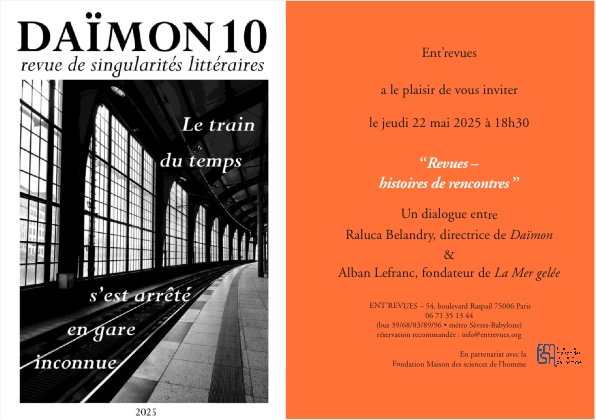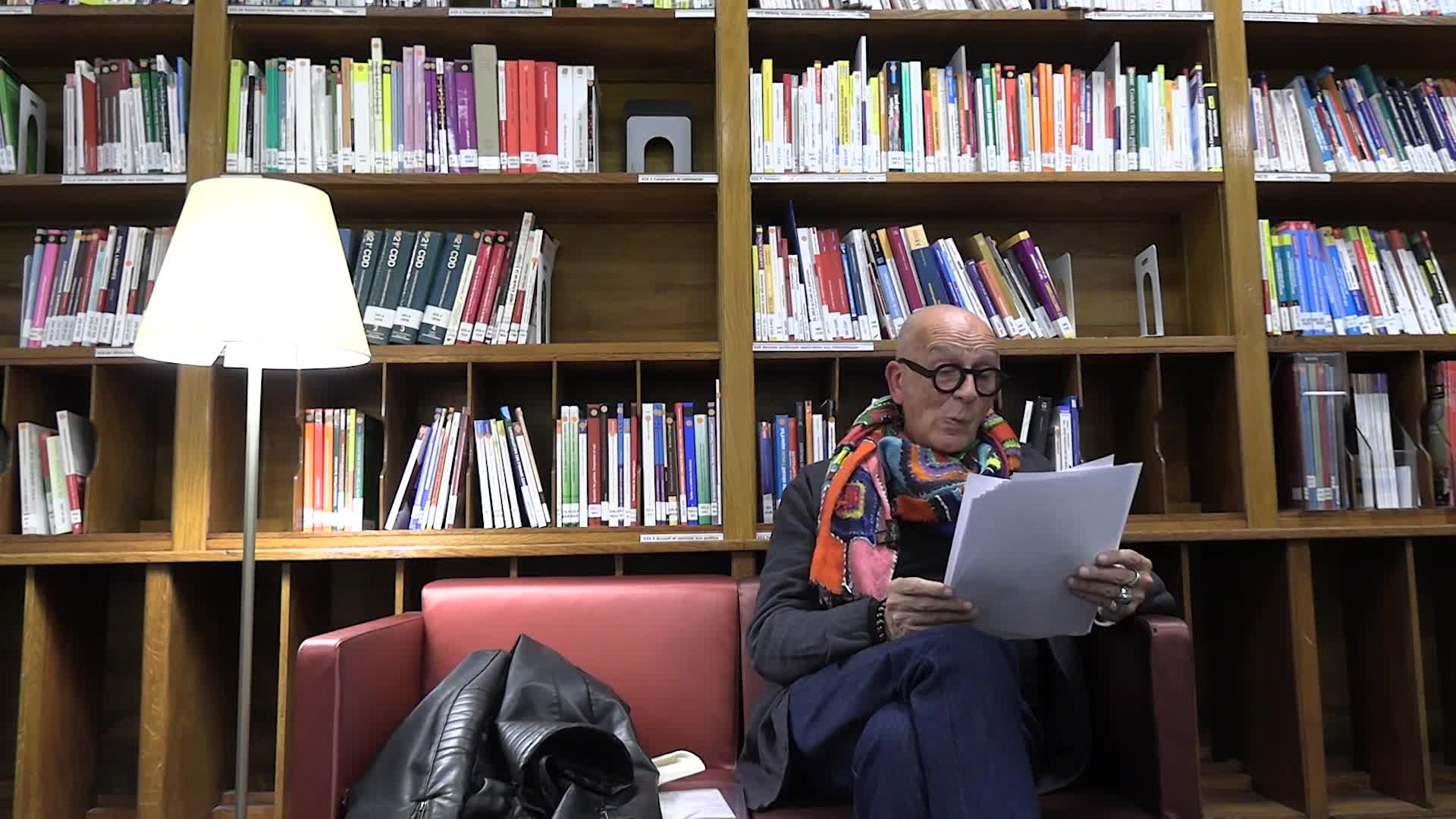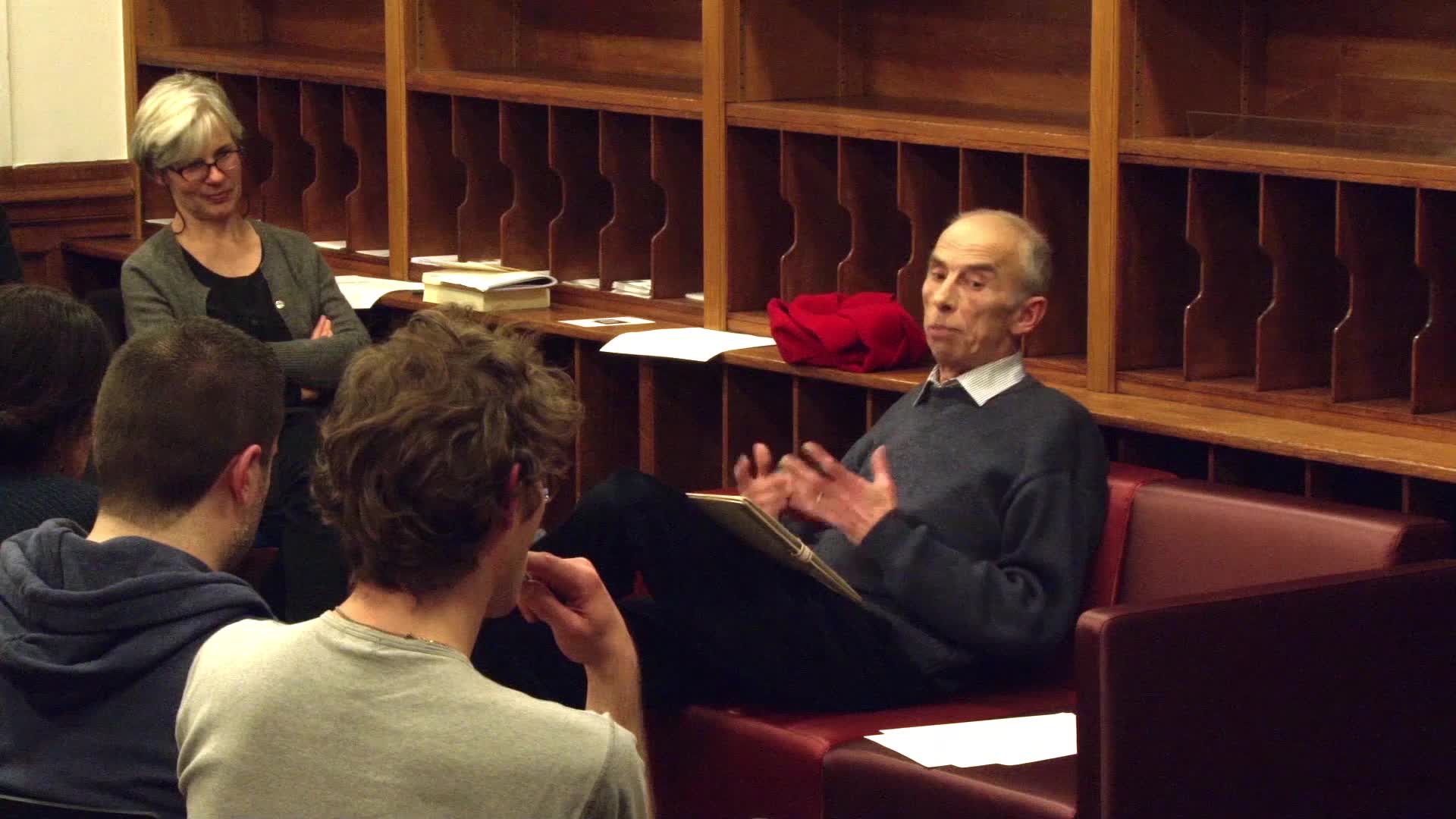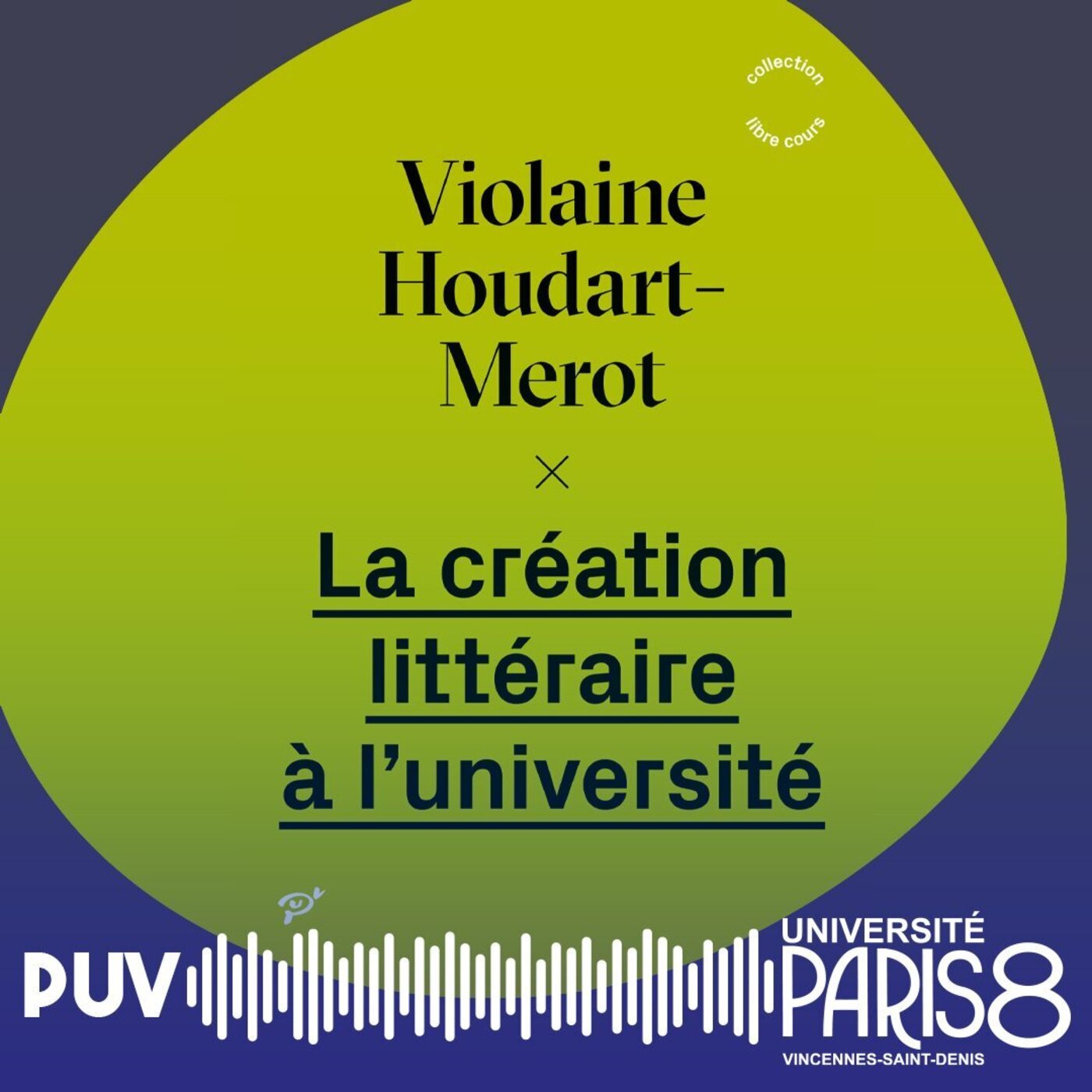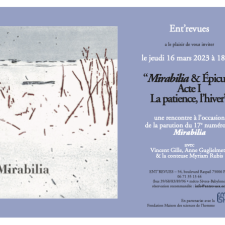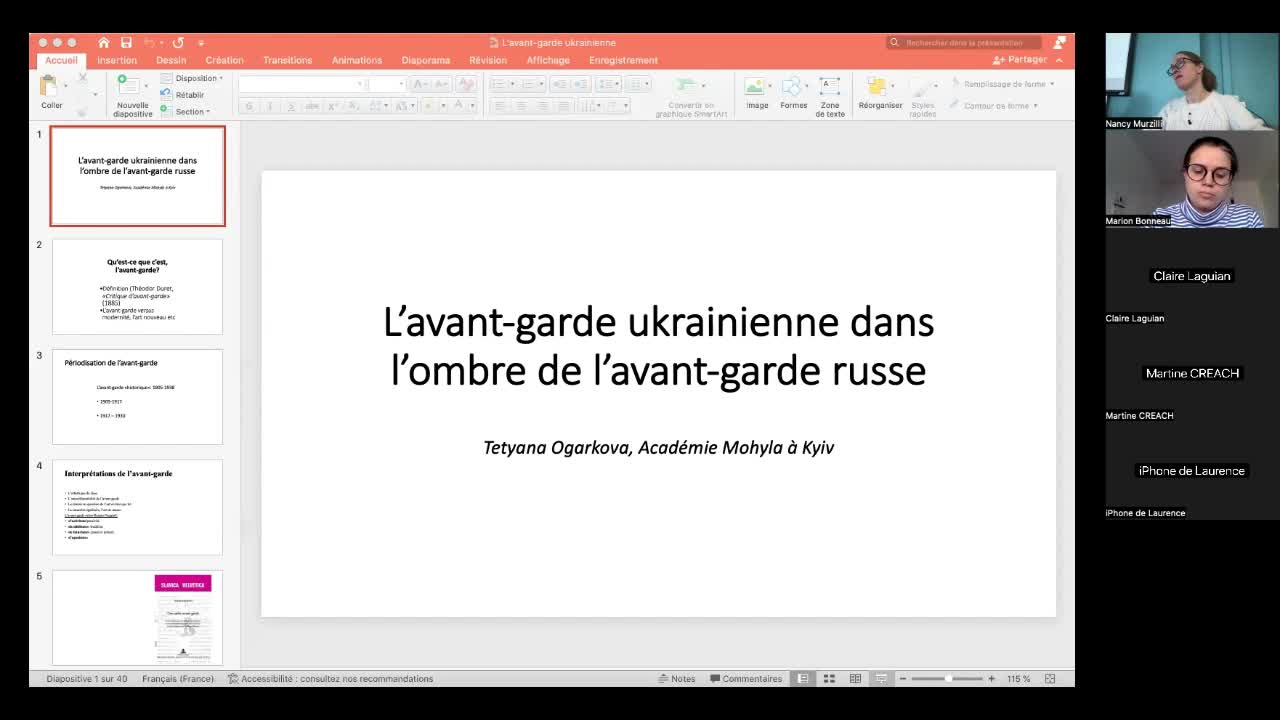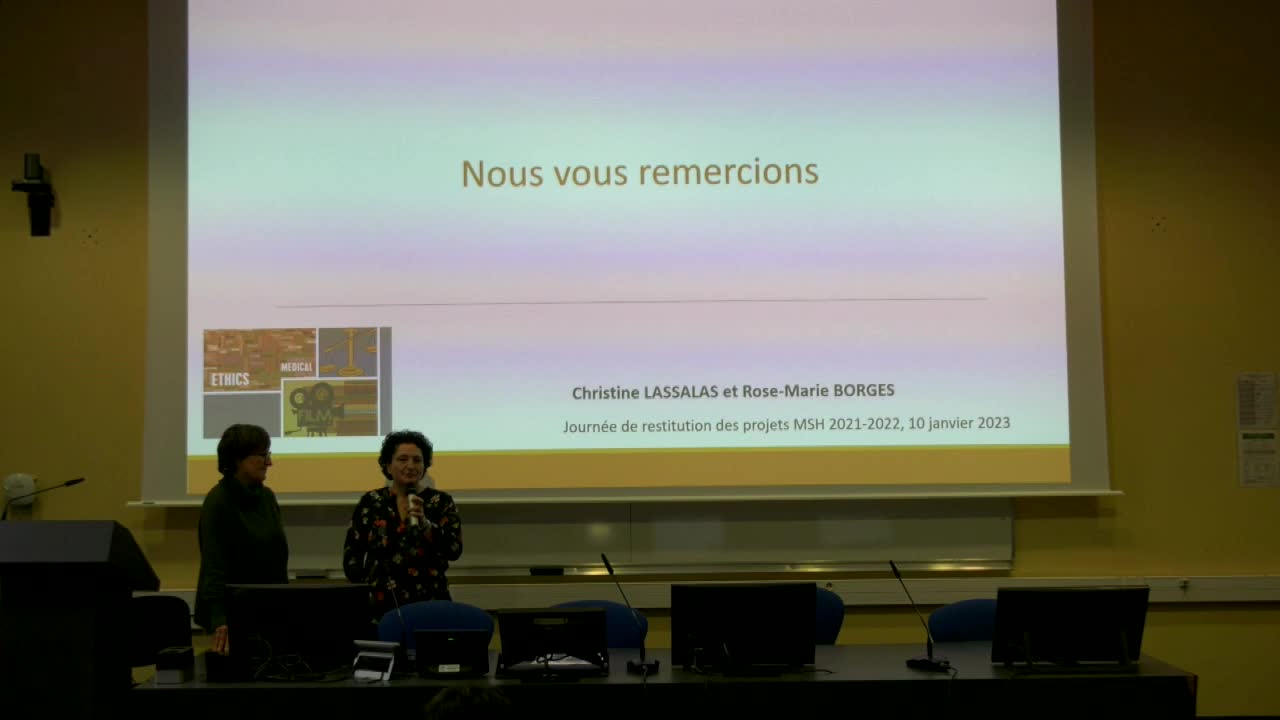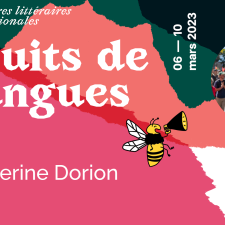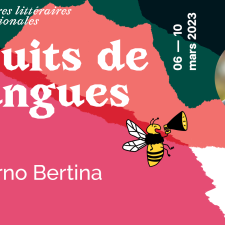Notice
MRSH Caen
Atonement Atwain — Transmedial Translations of Novelistic Discourse and Metafictional Devices
- document 1 document 2 document 3
- niveau 1 niveau 2 niveau 3
Descriptif
Cette communication a été enregistrée lors du colloque A diachronic approach to Ian McEwan’s fiction: from sensationalism to ethical writing qui s'est tenu à Caen les 16 et 17 mars 2018, organisé par l'Equipe de recherche interdisciplinaire sur la Grande-Bretagne, l'Irlande et l'Amérique du nord (ERIBIA). Ian McEwan est un auteur britannique contemporain majeur et prolifique. Enfant terrible à qui ses premières œuvres ont valu le surnom de “Ian Macabre”, lauréat du prestigieux Booker Prize en 1998 pour son roman Amsterdam et de nombre d’autres prix littéraires pour Atonement (2001) – au programme de l’agrégation 2018--il n’a cessé d’évoluer, de se réinventer et d’expérimenter avec les codes narratifs, avec par exemple Sweet Tooth (2012, un genre de roman d’espionnage) ou Nutshell, son dernier roman paru (2016), une réécriture originale et pleine d’esprit de Hamlet. Une rétrospective critique de l’ensemble de son œuvre par des intervenants internationaux et en présence de l’auteur lui-même mettra en avant l’intérêt et la diversité de sa production littéraire.
Abstract
Ian McEwan’s novel "Atonement" (2001) and Joe Wright’s film "Atonement" (2007)
This paper employs Mikhail Bakhtin’s notion of polyphonic novelistic discourse and Werner Wolf’s intermedial conceptualization of metareference in an analysis of the translation of metafictional and intertextual devices from Atonement the novel to Atonement the film. McEwan’s Atonement is, like so many novels, a novel about the novel. Apart from the innumerous explicit metareferential comments on writing and literature in general and on the writing of this particular novel in the revelatory final chapter, Atonement harbours abundant more implicit intertextual references to a wide range of literary texts. While this ‘double- voiced’ discourse need not per se elicit a metafictional or even illusion-breaking effect and is, according to Bakhtin, a feature all novels share, its potential meaning in Atonement extends mere literary self-reference and invites a reflection on fictionmaking and narrative convention. The disclosure of Briony as the novel’s posited author, retrospectively puts the preceding parts of the novel in intonational quotation marks, revealing what had seemed to be narratorial discourse as having been a character’s utterance instead. This metaleptic structure is not implemented in Wright’s Atonement, which also must lack the many implicit intertextual references to verbal art unfeasible in film. This paper explores the question of whether—and if, how—the non-availability of verbal stylistic devices alters the meaning and implied worldview of the film version.
Sur le même thème
-
Soirée Ent'revues : "Daïmon"
BelandryRalucaLefrancAlbanRencontre avec Raluca Belandry et Alban Lefranc autour de la revue Daïmon
-
Law, Identity, and Redemption: Justice in Karan Johar’s My Name is Khan
LefrançoisFrédéricCommunication présentée le 9 mai 2025 lors du Colloque international de la SARI "Représentation de la justice dans le cinéma indien 9 et 10 mai 2025" (Université Sorbonne Paris Nord, Campus de
-
Le Livre en question 7 : Thierry Magnier
MagnierThierryLecture de Thierry Magnier : une création originale inspirée par les collections de la BIS.
-
Le Livre en question 1 : Pierre Bergounioux
BergouniouxPierreLecture de Pierre Bergounioux : une création originale inspirée par les collections de la BIS
-
La Création Littéraire à l'Université de Violaine Houdart-Merot aux Presses universitaires de Vince…
Houdart-MerotViolaineLa création littéraire ? Mais ça ne s’apprend pas ! Réponse souvent entendue quand il est question de ce qu’en France on ne considère pas comme une discipline universitaire. Peut-on enseigner l’art d
-
Emma Larthomas, étudiante et cinéaste, itinéraire d'une créatrice précoce
Brunet-MalbrancqJoëlleLarthomasEmmaLes causeries de la culture - La culture à l'université 2
-
Le Pas de Saladin. Sources et enjeux de la création littéraire d'un passage infranchissable dans le…
SellamiJoudaCommunication dans le cadre de la table-ronde : Détroits et passages « Dedans / Dehors » « GlobalMed – La Méditerranée et le monde de la Préhistoire à nos jours. Approches interdisciplinaires et
-
Ent'revues : Soirée "Mirabilia"
GilleVincentGuglielmettiAnneRubisMyriamRencontre avec Vincent Gille, Anne Guglielmetti et la conteuse Myriam Rubis à l'occasion de la parution du 17e numéro de "Mirabilia".
-
Conférence de Tetyana Ogarkova : « L’avant-garde ukrainienne dans l’ombre de l’avant-garde russe »
OgarkovaTetyanaL’équipe FabLitt a eu le plaisir de recevoir, le 4 avril 2023, Tetyana Ogarkova (professeure à l’Académie Mohyla, professeure invitée du Département de Littérature française, francophone et comparée
-
Le CiD - Le cinéma et le droit : Investigation comparative des dilemmes bioéthiques
LassalasChristineBorgesRose-MarieChristine Lassalas (CMH) et Rose-Marie Borges (CMH) relatent la manière dont elles ont conduit le projet Le Cid, programme croisant le cinéma, le droit et l'éthique.
-
Rencontre avec Catherine Dorion
Rencontre avec l'autrice, comédienne et militante politique du Quebec, Catherine Dorion
-
Rencontre avec Arno Bertina
BertinaArnoConsidérant que sa « langue natale, c’est le roman », Arno Bertina se construit autour d’un langage et d’une littérature variée, l’amenant à co-fonder le collectif d’écrivains autour de la revue et de


